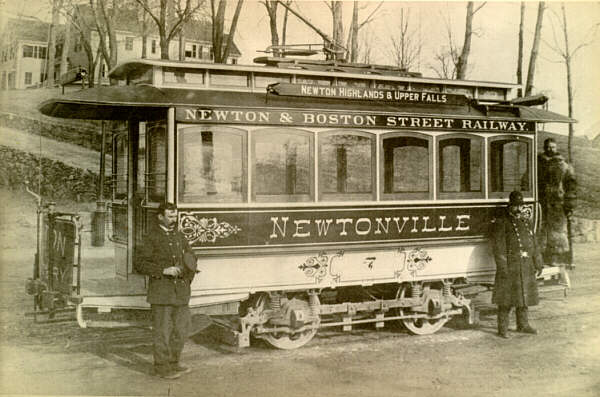|
Société De Transport De Trois-Rivières
Société de transport de Trois-Rivières (STTR) was formed in 2002 to operate transit services, after the merger of the six municipalities that today constitute the city of Trois-Rivières, Quebec Quebec ( ; )According to the Canadian government, ''Québec'' (with the acute accent) is the official name in Canadian French and ''Quebec'' (without the accent) is the province's official name in Canadian English is one of the thirtee ..., Canada. Previously the ''Corporation intermunicipale de transport des Forges'' (CITF) had provided service in the area since 1979. It covers a population of more than 126,000 people with its urban bus routes, school buses and tours, carrying more than 8200 users per day for a total of about 3 million trips a year. History Chronology of the transit system operators. :1915 to 1939: Three Rivers Traction Company :1940 to 1975: la Compagnie de Transport St. Maurice :1975 to 1979: Ville de Trois-Rivières :1979 to 2001: Corporation intermuni ... [...More Info...] [...Related Items...] OR: [Wikipedia] [Google] [Baidu] |
Trois-Rivières
Trois-Rivières (, – 'Three Rivers') is a city in the Mauricie administrative region of Quebec, Canada, at the confluence of the Saint-Maurice River, Saint-Maurice and Saint Lawrence River, Saint Lawrence rivers, on the north shore of the Saint Lawrence River across from the city of Bécancour, Quebec, Bécancour. It is part of the densely populated Quebec City–Windsor Corridor and is approximately halfway between Montreal and Quebec City. Trois-Rivières is the economic and cultural hub of the Mauricie region. The settlement was founded by French colonists on July 4, 1634, as the second permanent settlement in New France, after Quebec City in 1608. The city's name, which is French for 'three rivers', is named for the fact the Saint-Maurice River has three mouths at the Saint Lawrence River; it is divided by two islands in the river. Historically, in English this city was once known as Three Rivers. Since the late 20th century, when there has been more recognition of Quebec a ... [...More Info...] [...Related Items...] OR: [Wikipedia] [Google] [Baidu] |
Quebec
Quebec ( ; )According to the Canadian government, ''Québec'' (with the acute accent) is the official name in Canadian French and ''Quebec'' (without the accent) is the province's official name in Canadian English is one of the thirteen provinces and territories of Canada. It is the largest province by area and the second-largest by population. Much of the population lives in urban areas along the St. Lawrence River, between the most populous city, Montreal, and the provincial capital, Quebec City. Quebec is the home of the Québécois nation. Located in Central Canada, the province shares land borders with Ontario to the west, Newfoundland and Labrador to the northeast, New Brunswick to the southeast, and a coastal border with Nunavut; in the south it borders Maine, New Hampshire, Vermont, and New York in the United States. Between 1534 and 1763, Quebec was called ''Canada'' and was the most developed colony in New France. Following the Seven Years' War, Quebec b ... [...More Info...] [...Related Items...] OR: [Wikipedia] [Google] [Baidu] |
Public Transit
Public transport (also known as public transportation, public transit, mass transit, or simply transit) is a system of transport for passengers by group travel systems available for use by the general public unlike private transport, typically managed on a schedule, operated on established routes, and that charge a posted fee for each trip. There is no rigid definition; the ''Encyclopædia Britannica'' specifies that public transportation is within urban areas, and air travel is often not thought of when discussing public transport—dictionaries use wording like "buses, trains, etc." Examples of public transport include Public transport bus service, city buses, trolleybuses, trams (or light rail) and Passenger rail transport, passenger trains, rapid transit (metro/subway/underground, etc.) and ferry, ferries. Public transport between cities is dominated by airlines, intercity bus service, coaches, and intercity rail. High-speed rail networks are being developed in many parts ... [...More Info...] [...Related Items...] OR: [Wikipedia] [Google] [Baidu] |
Transit Agencies In Quebec
Transit may refer to: Arts and entertainment Film * ''Transit'' (1979 film), a 1979 Israeli film * ''Transit'' (2005 film), a film produced by MTV and Staying-Alive about four people in countries in the world * ''Transit'' (2006 film), a 2006 film about Russian and American pilots in World War II * ''Transit'' (2012 film), an American thriller * ''Transit'' (2013 film), a Filipino independent film * ''Transit'' (2018 film), a German film Literature * ''Transit'' (Cooper novel), a 1964 science fiction by Edmund Cooper * ''Transit'' (Seghers novel), a 1944 novel by Anna Seghers * ''Transit'' (Aaronovitch novel), a 1992 novel by Ben Aaronovitch based on the TV series ''Doctor Who'' Music * Transit (band), an American emo band from Boston, Massachusetts * ''Transit'' (Ira Stein and Russel Walder album), an album by acoustic duo Ira Stein and Russel Walder, released 1986 * ''Transit'' (Sponge Cola album) * ''Transit'' (A. J. Croce album) * '' Transit ... [...More Info...] [...Related Items...] OR: [Wikipedia] [Google] [Baidu] |
Transport In Trois-Rivières
Transport (in British English), or transportation (in American English), is the intentional movement of humans, animals, and goods from one location to another. Modes of transport include air, land (rail and road), water, cable, pipeline, and space. The field can be divided into infrastructure, vehicles, and operations. Transport enables human trade, which is essential for the development of civilizations. Transport infrastructure consists of both fixed installations, including roads, railways, airways, waterways, canals, and pipelines, and terminals such as airports, railway stations, bus stations, warehouses, trucking terminals, refueling depots (including fueling docks and fuel stations), and seaports. Terminals may be used both for interchange of passengers and cargo and for maintenance. Means of transport are any of the different kinds of transport facilities used to carry people or cargo. They may include vehicles, riding animals, and pack animals. Vehicles may inc ... [...More Info...] [...Related Items...] OR: [Wikipedia] [Google] [Baidu] |



